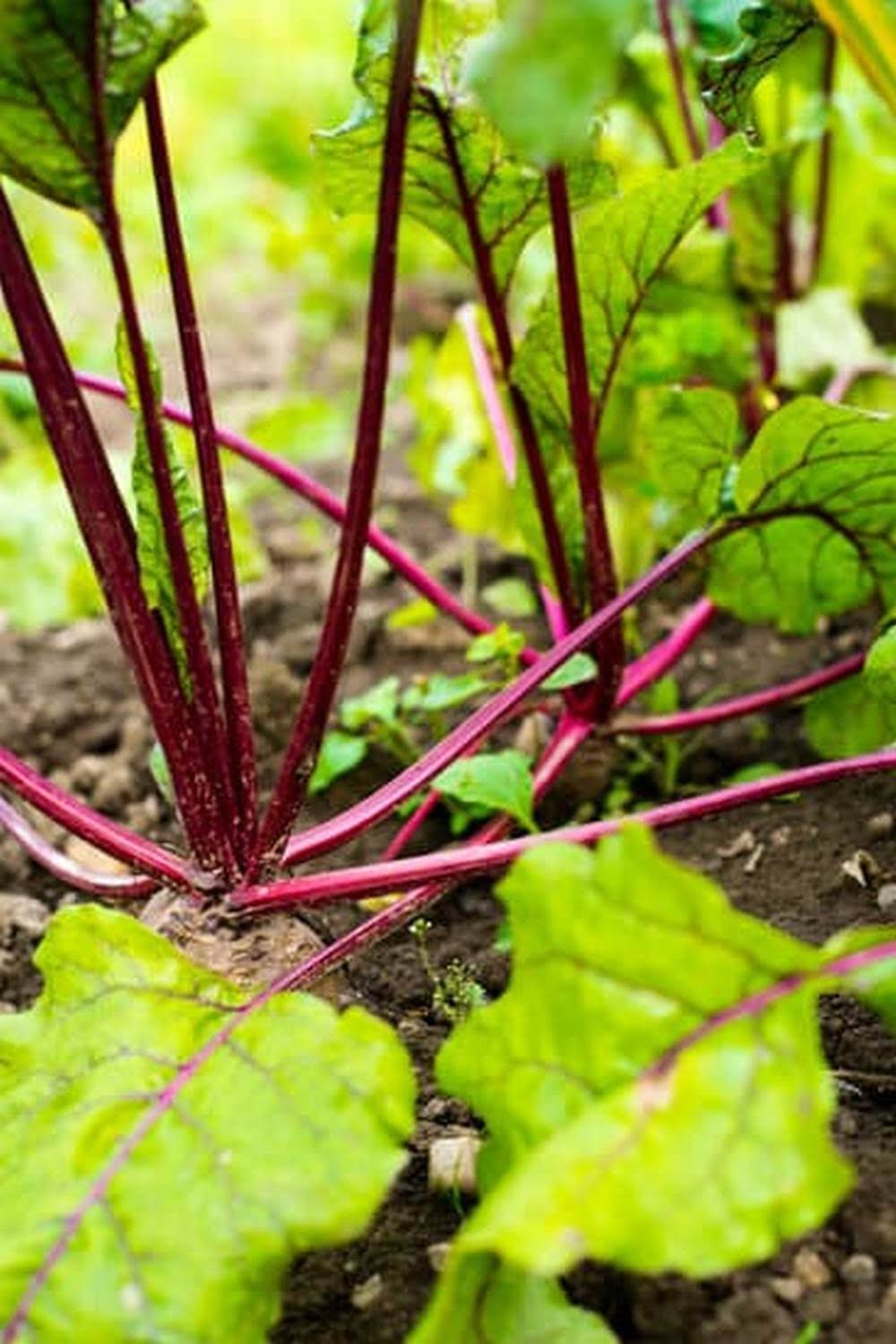Introduction
Organic nutrients are a great addition to any vegetable garden. Organic nutrients provide plants with an abundance of essential minerals and vitamins, allowing them to grow healthier and more abundant yields. Organic fertilizers also help prevent soil erosion and improve water retention, increasing the quality of the soil by adding organic matter. This can make it easier for plants to absorb moisture and pump out vital nutrients for faster growth. Additionally, organic fertilizers will help suppress weed growth, adding fewer chemicals into the ground so that gardens are free from harsh pesticides and herbicides. Overall, using organic nutrients is a great way to ensure that your vegetable garden is both healthy and productive.
Exploring the Benefits of Organic Nurtient-Based Gardening
Organic nutrient-based gardening is an increasingly popular and sustainable way to cultivate vegetables. Rather than relying on artificial, chemically-based fertilizers, organic nutrients are derived from natural sources such as composted plant material, manures from animals, fish waste, and rock dust. These components create a type of soil that is incredibly rich in minerals and full of beneficial microorganisms, which helps your garden plants flourish for years to come.
Using organic nutrients for your vegetable garden is beneficial for a variety of reasons. Firstly, you are giving back to the environment by using resources that would have otherwise been wasted. Secondly, because the soil contains all kinds of beneficial creatures like earthworms, it is better aerated than chemically based soils. This means better drainage and higher chances of healthy root growth. Furthermore, as these nutrients come from natural sources they are also much safer for human beings and wildlife due to the lack of chemical or synthetic additives found in artificial fertilizers. Lastly, with the right combination of organic materials in your garden’s soil there can be fewer issues with pests or diseases as it creates the right conditions for plants to stay naturally healthy.
To sum up organic nutrient-based gardening has major advantages that make it a worth while investment whether long term or short term: increased nourishment in the soil leading to better plant health; saving money due to not having to buy additional chemicals; fewer risks associated with environmental pollution; and an overall healthier ecosystem. It’s no wonder this method has taken off as people try more sustainable and eco-friendly approaches when creating their gardens!
The Benefits of Quality Soil Health Through Organic Nutrients
Organic nutrients for vegetable gardening are important for providing plants with the necessary building blocks for photosynthesis and growth. These organic nutrients help to improve soil fertility, increase plant health, and maintain a healthy environment within the garden. Organic nutrients can come in the form of both organic fertilizers and organic composts. Adding these organic nutritional sources to soil introduces beneficial bacteria and micro-organisms that help break down organic matter into usable nutrition for plants. Additionally, these organisms act as beneficial pest control, beneficial nematodes, and aids in forming an ecosystem within the vegetable garden bed.
Organic nutrients don’t only add nutritional value to the soil but also improve soil texture. Improving soil texture helps water absorption and drainage throughout the season helping your gardens to retain more moisture when needed for fussy veggies such as tomatoes or cucumbers. It can also reduce erosion during heavy rains by helping bind together particles so they don’t wash away from overflows or flooding impacts. Composts are particularly effective at improving soil structure when added regularly as new layer is added over previous years layers as they continually decompose over time adding even more benefits while also improving soil oxygenation by introducing a fragile cosmos of earthworms, beetles, fungi and bacteria all participating in breaking down litter which results in increased air flow around root systems allowing more efficient nutrient absorption and reducing disease vectoring mold problems in leaf mulch coverage areas such as lettuces or spinach beds where there is always moist high humidity environments that tends to attract diseases spores if not properly managed through quality composts incorporating regularly into beds yearly cycle maintenance program. By providing soils with regular compost amendments this promotes healthy bacterial colonies activity that feed off oxygen absorption which will provide higher yields of quality harvestable produce for consumption of households that enjoy eating things grown local from their home gardens without having to worry about purchasing supplies from distant regions with unknown contamination risks on food supply chain products due to improper timing harvesting going outdated before reaching market flash consumer consumption cycles leading up to spoilage during final destinations arrivals
DIY Recipes to Create Your Own Organic Nutrients
It is essential to maintain the quality of your soil when growing vegetables in your garden. Organic nutrients provide essential trace minerals and other nutrients that promote plant health and growth. While organic fertilizers can be purchased at stores, they can also be made at home with inexpensive everyday items. Here are three easy DIY recipes to make your own organic nutrients for your vegetable garden:
1. Seaweed Tea: Seaweed can be left to soak overnight in a bucket of water to create an infusion of minerals that can be used directly on Vegetables or shrubs. Simply fill a bucket with seaweed, cover it with water, and let steep for 12 hours or longer before using.
2. Compost Tea: Compost tea is made by adding several handfuls of compost to the same bucket you used for seaweed tea, then filling it with water and allowing it to steep for up to 24 hours before using. This will release beneficial bacteria into the liquid which can help revitalize soil that has been over-fertilized or depleted from other sources.
3. Coffee Grounds and Epson Salts: Coffee grounds have an acidic effect, and should therefore be mixed with Epsom salts as they have a neutralizing property that helps balance out the acidity of the grounds. To make this mixture, add two parts coffee grounds to one part Epsom salts – these ingredients can then be added directly onto vegetable beds or diluted in water before being applied as fertilizer.
The Different Types of Organic Nutrients
Organic nutrients are those elements that are naturally derived from plant and animal sources. They are considered the best type of nutrient when it comes to creating a healthy vegetable garden. Organic nutrients provide essential minerals such as nitrogen, phosphorus, and potassium that can be used to enhance the quality and yield of vegetables. Soil amendments like well-composted manure, green manures, or fertility enhancing insect frass can greatly benefit your vegetable garden by providing organic matter to the soil. Additionally, compost and humus made from decaying plant material can help buffer the pH level so that both macro and micro nutrients are available to stabilize your growing environment. Even certain types of rockdusts like glacial rock dust or basalt dust can help ensure your plants receive all the necessary minerals they need for healthy growth. Lastly, using an organic fertilizer made up of fish emulsion or liquid seaweed applied directly to foliage is a great way to give your plants a boost in nutrition without potentially impacting overall taste.
Identifying the Right Organic Nutrients for Your Vegetable Garden
Organic nutrients are an ideal choice for vegetable gardens, as they provide the garden with vitamins and trace minerals that only naturally-occurring compounds can. When selecting the right organic nutrients for your vegetable garden, it is important to consider both which type of nutrient your soil needs and also the pH of your soil. Depending on the pH, different organic nutrients need to be used or not used in order to keep it at a level appropriate for plant growth. Organic matter such as composted leaves and grass clippings can act as natural fertilizers, providing slow-release nitrates that can stimulate increased microbial activity in the soil over time. However, these materials alone may not provide all of the necessary macro-nutrients—carbon, nitrogen and other elements that plants need to thrive. Therefore, additional sources like fish meal, seaweed extract or granular fertilizers may need to be added for fuller nutrition for healthy crops. Additionally, amendments like rock dust may help add trace minerals back into the soil’s mineral profile. Striking a balance between existing nutrients in the soil and careful additions of new ones is key; this will ensure that vegetables are receiving proper nutrition while protecting them from nutrient burn or toxicity due to excessive concentrations of any one element.
Maximizing the Benefits of Organic Nutrients in Your Garden
Organic nutrients are essential for maintaining the health and vitality of a vegetable garden. These nutritious compounds found in compost, manure, and earthworms help to nourish and fertilize the soil, enabling it to produce healthy crops of vegetables. Here are some tips for maximizing the benefits that organic nutrients can provide to your garden:
1) Start with a high-quality compost. Avoid low-cost commercial varieties that may be filled with additives because these can slow down the decomposition process or have a negative impact on your soil’s quality. The best composts will be made from natural organic matter such as decayed leaves, grasses, twigs, and other organic materials.
2) Add manure from animals such as cows, horses, chickens, or pigs to increase nutrition. Manure provides beneficial bacteria that helps improve water retention in the soil and helps plants absorb more vital nutrients from their environment. Make sure that you use fresh manure so it retains its maximum benefits for your plants.
3) Incorporate earthworms into your garden beds for added structure and aeration by creating burrows throughout the soil layers. Worms also play an important role in aiding nutrient absorption by breaking down organic matter into small pieces so they are able to penetrate deep into the soil where root systems can access them more easily.
4) Provide adequate moisture through regular irrigation to ensure that any added nutrients have enough water to dissolve them in order to promote healthy growth and development of your plants. Additionally moist soil prevents large particles of organic matter from clumping together which will block oxygen and light needed by roots.
5) Perform regular soil tests so you know just how much nitrogen, phosphorus and potassium (NPK) is present in order to determine what type of fertilizer needs to be applied if necessary. An unbalanced ratio of NPK can lead to detrimental effects on plant health including death, pest infestations or stunted growth.
Implementing Organic Nutrients in Your Gardening Routines
Organic nutrients can be a great way to give your vegetable garden the nourishment it needs. This type of soil amendment encourages healthier plant growth and increased yields from larger and more robust fruits and vegetables. Organic materials such as compost, manure, bone meal, and rock dust are all good sources of organic nutrients for your vegetable garden. Compost is particularly beneficial for providing steady release over time, helping improve water holding in sandy soils or draining wet soils. It is important to remember that when you introduce these sources of nutrition into your soil, it will take some time for them to break down before the nutrients are available for the plants. To speed up this process consider applying compost tea or liquid fertilizer for an immediate nutrient boost in addition to introducing organic matter into your soil! For best results use mulch around each individual plant to promote better overall soil-structure health, increase water content retention, enhance seed germination rates, suppress weeds, and even warm up the soils faster in early spring. Additionally experimenting with crop-rotation strategies can aid in improving soil fertility while working wonders towards controlling pests & diseases too. Taking the time to regularly check your pH levels during the season may also be recommended if needed depending on what type of vegetation you’re growing in order to insure optimal availability of all needed minerals & nutrition. Armed with these strategies you should now be ready to explore how incorporating organic nutrients into your vegetable gardening routines can help ensure a fully healthy harvest with maximum productivity each season!
Managing Potential Risks When Utilizing Organic Nutrients
Organic nutrients are great for vegetable gardens as they provide beneficial minerals, and the slow release of these nutrients helps the soil develop strong microbial communities that can help plants continue to grow and thrive. However, there are a few risks to be aware of when using organic fertilizers in your garden.
One risk is the potential for toxic run off if the nutrient levels in soil become too high because of over-fertilization. This can occur when concentrated or heavily applied manure or other organic fertilizer is not incorporated enough into the soil or given time to break down before planting seeds or seedlings. The runoff from overly fertilized soils can contaminate nearby bodies of water, altering delicate ecosystems. To avoid this situation, it’s important to monitor your garden regularly and become familiar with different types of fertilizers you may be using.
Another risk involves pests such as nematodes, which are often found in organic fertilizers like manures. If left unchecked, these pests can quickly destroy your plants. It’s important to inspect organic materials before adding them to your garden and also use integrated pest management tactics such as physical removal or biological methods to keep populations under control. Finally, many organic materials contain weed seeds that could potentially germinate and cause problems later on. To reduce this risk, make sure all organic materials are free from foreign debris before application.
Conclusion
Organic nutrients are the key to unlocking a healthier and more flavorful vegetable garden. They provide the healthy microorganisms plants need to thrive. Organic fertilizers have been around for centuries, and they provide the beneficial bacteria and fungi our gardens need to produce an abundance of healthy fruits, vegetables, and herbs. Organic nutrients also help break down organic matter in soil to increase its fertility. These organic nutrients are a natural way to add essential vitamins, minerals, and trace elements for plant growth and development. With proper maintenance and preparation of soil through organically-sourced materials, even the most amateur gardener can achieve an abundant and tasty crop with minimal effort. While your garden will take some extra effort upfront to introduce these organic nutrients into its system, this effort is well worth it in terms of the quality produce you will yield. By unlocking the power of these organic nutrients in your garden you will be sure to find yourself harvesting delicious vegetables every season!

If you’re looking to get into vegetable gardening, or are just looking for some tips on how to make your current garden better, then you’ve come to the right place! My name is Ethel and I have been gardening for years. In this blog, I’m going to share with you some of my best tips on how to create a successful vegetable garden.





